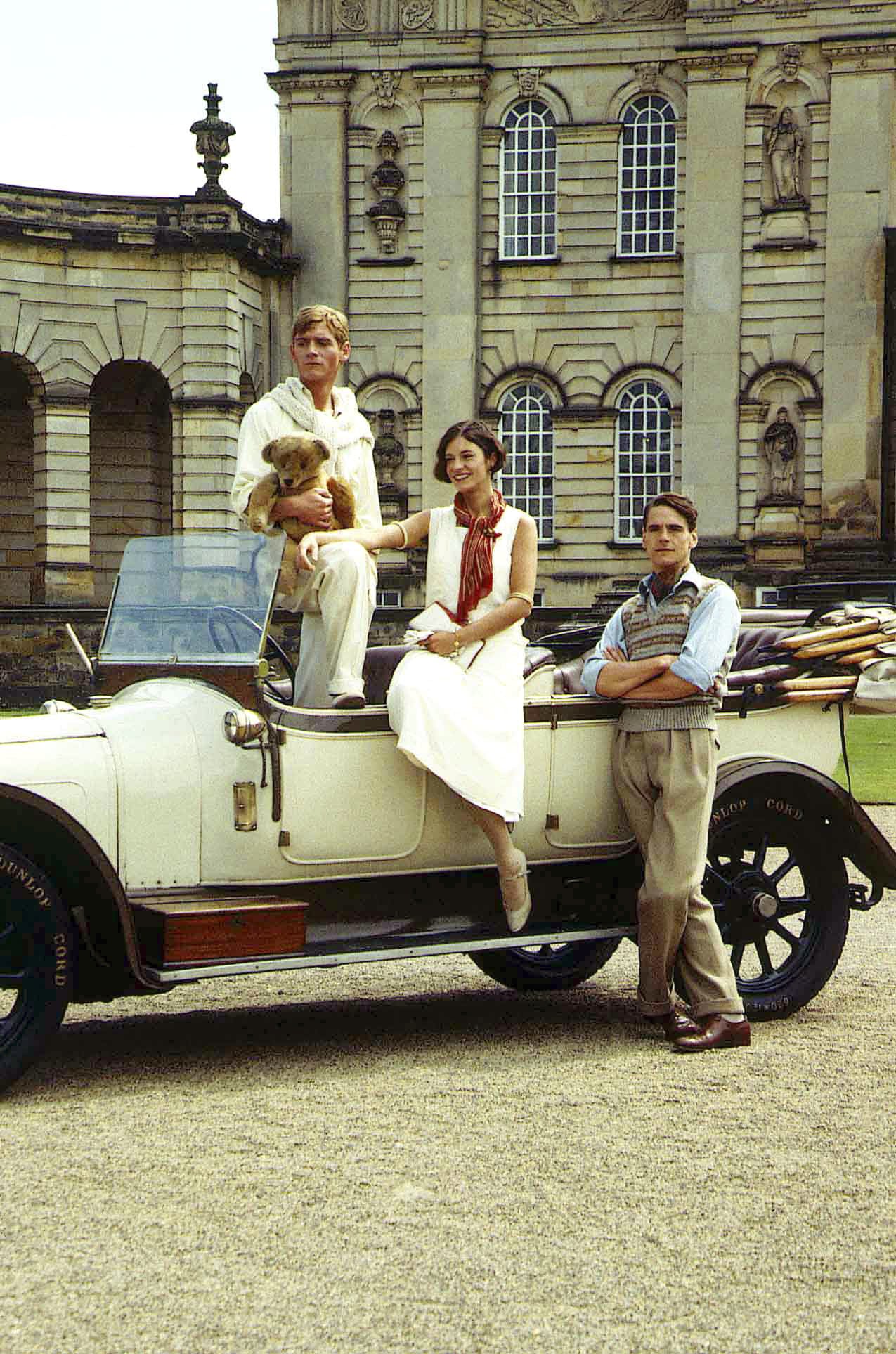

Charles should meet Sebastian's father, Sebastian says, as he’s "a very nice man."

Charles wants to know: if Sebastian believes in it all, where is the difficulty? But Sebastian only responds that if Charles can’t see it, he can’t see it.He believes in it because it is "a lovely idea." To Charles’s great surprise, he believes in the story of Christmas and Jesus. Sebastian says he prays every day to be made good, but not yet.But Sebastian was of course raised a strict Catholic, which he admits is difficult. Charles himself has no religion, and always considered it a myth that had finally been exposed. Of course, the topic of religion soon arises.Some time later they realize there’s enough old wine in the cellar to keep them quite happy ("enough" = 4 bottles a night between them) for the rest of the summer.Charles paints a romantic landscape, without figures, which comes out rather well, if he does say so himself. One day the young men find a set of oil paints and decide to decorate the office.Charles feels his aesthetic predilections shifting to the baroque as the summer continues.He does, and at Sebastian’s order gives it not to Lady Marchmain, but to Nanny Hawkins. Sebastian convinces his friend to draw the grandiose fountain in the center of the terrace.("What does it matter when it was built if it’s pretty?" he asks.)


Living at Brideshead is to Charles an aesthetic education, though Sebastian is unconcerned with the history or facts of the architecture and design.Sebastian is discussing Brideshead Castle with Charles and explains that it doesn’t really belong to him, since it is "full of ravening beasts" at the moment.This is what he experienced that summer with Sebastian at Brideshead, and he believes he was very close to heaven in those days. Languor belongs only to youth, he says, and can never be recaptured later in life. Charles reflects on Youth, and more particularly, the languor or relaxation which goes with it.


 0 kommentar(er)
0 kommentar(er)
